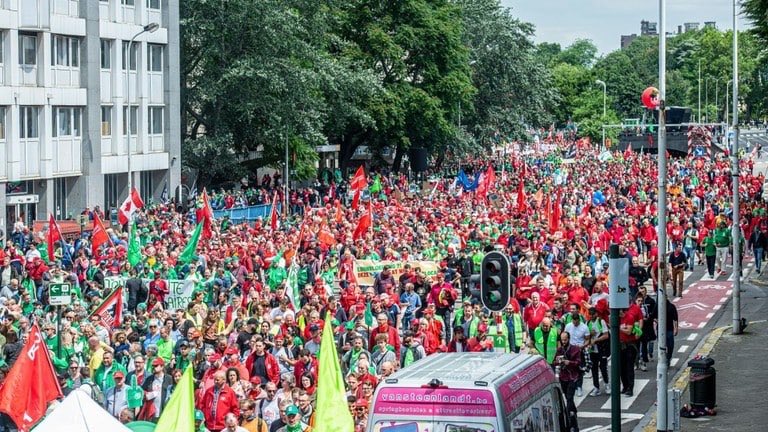Yesterday, 20 June, 70,000 to 80,000 people demonstrated in Belgium's capital Brussels in the course of a strike against inflation. The cost of living has also risen massively in Belgium in the wake of the economic crisis, which was first accelerated and intensified by the Corona pandemic and now by the war in Ukraine. Inflation in the country is now at 9 per cent, a few per cent higher than here in Germany. Food and everyday consumer goods are more than 30 per cent more expensive than last year. The Belgian government under the leadership of Prime Minister Alexander De Croo has reduced taxes on gas, fuel and electricity, but this does not compensate for the general price increases.
The Belgian workers demanded higher wages, better working conditions, the end of the so-called consumer tax and government aid measures on banners, signs and with slogans. Bengalos were repeatedly set off at the demonstration.
Brussels airport was at a standstill because of the strike. Local public transport only ran on an emergency basis, with train services organised so that people could still travel to Brussels from other cities in the morning to join the demonstration.
The large participation of the workers in the demonstration in Brussels shows how bad the situation really is. The masses cannot and do not want to go on as they are. It shows what a big potential there is and that the revolutionary situation is also developing in the imperialist countries. At the same time, it has also become clear that there is a lack of an organisation that actually leads the workers' struggle.

